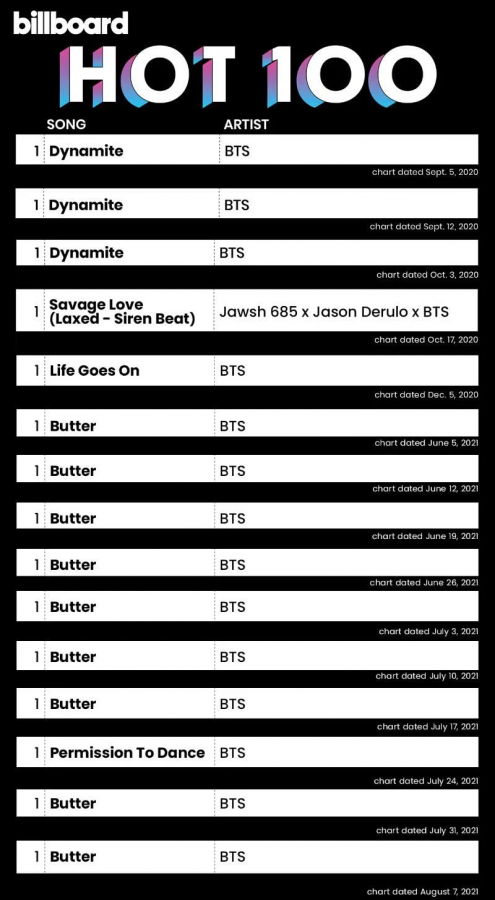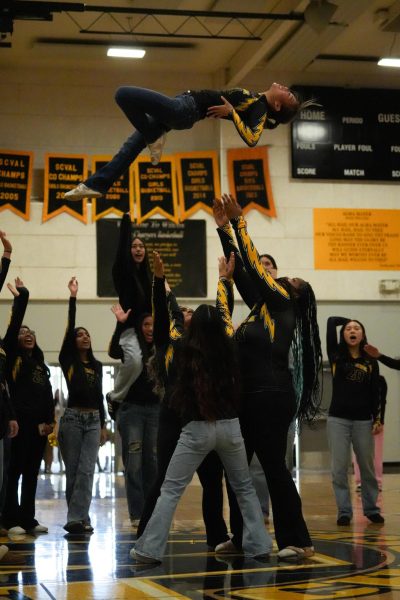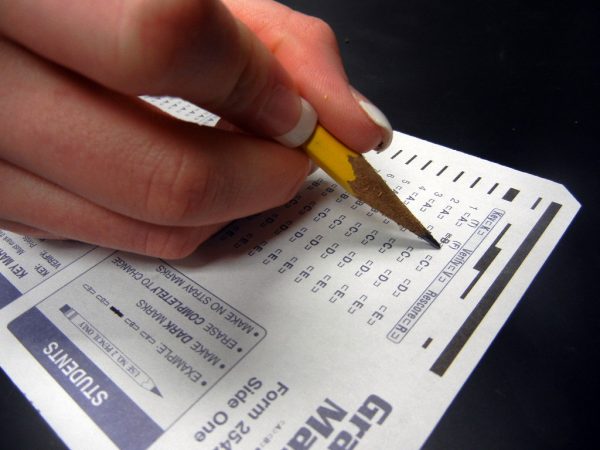The Music Industry was Built on Racism
Characterizing BTS’ artistry as “manufactured” and “robotic” is quite common among western media; to even call them “just production.” BTS is a Korean boy band that broke through western media in 2017 and became popular worldwide. They earned their 17th hit on the Billboard Hot 100 with their recent release, Butter. Numerous entertainment publications such as Forbes Magazine have spent weeks releasing headlines about the Korean group’s pop track’s new single breaking records on Youtube, Spotify, & beyond.
Now with this high level of success, western media has no choice but to take the Korean pop group seriously. Billboard Magazine interviewed BTS but failed to ask them about their artistry at all. Instead, the interviewer bluntly accused them of chart manipulation and other completely irrelevant subjects. The leader of BTS, RM, had to respond, saying that it was a fair question. However, he added that “..if there is a conversation inside Billboard about what being No. 1 should represent, then it’s up to them to change the rules and make streaming weigh more on the ranking. Slamming us or our fans for getting to No. 1 with physical sales and downloads, I don’t know if that’s right … It just feels like we’re easy targets because we’re a boy band, a K-pop act, and we have this high fan loyalty.” It’s worth remembering that BTS has never relied on ticket bundles or merch to sell their music because they don’t have to. They consistently have charted numbers like Taylor Swift, Justin Bieber, & Drake (who have been mass buying & using bundles for years.)
This sort of success cannot be fabricated. BTS has been steadily growing their fanbase that gives them the power to rocket their songs & albums to No. 1 both in America & abroad. Because that’s how popularity works; gain fans and get higher & better chart placement. BTS aren’t devaluing the credibility of Billboard charts; these charts were fundamentally broken for years. BTS is just spotlighting this, both the metrics and exactly how song popularity is calculated. Pop radio has been an outdated stand that has been upholding the status quo of promoting algorithmic pop songs by Western artists. BTS was disapproved of for their nonconformity and even criticized singing in their native language. Within the fanbase, there was excitement that radio stations quickly added BTS’ two English songs, but this also indicates extremely problematic issues still revolving around the organization of streaming and the top song charts.
Companies like Spotify have never truly been transparent with their streaming filtration methods, including the official first-day streams of Spotify filtrations which were officially recorded as 11 million, filtered down from the 20.9 million original streams. And if we’re talking about mischievous sales tactics, let’s not forget that before the start of Nielsen SoundScan in 1991, Billboard tracked down sales by dialing record stores across the US, an honor system that was fraught with outright fraud by clerks with a vendetta against certain artists or even a minor financial incentive from record labels. If we want to claim that the charts are useless, we have to admit that they have been for decades.
Rather than insinuating that this dishonesty is on the fans for spending their pocket money on music that their favorite artists released — which you might recall, is how songs usually topped the charts before streaming entered the game — maybe it’s important to criticize the record labels that pay thousands of dollars to record stations to play their music even though this practice of pay-and-play is ostensibly outlawed, according to Rolling Stone. We should ask the reason why non-Western artists are discriminated against and why their fans should have to employ alternative methods to get them onto the charts; while providing proof that it’s organic. This discrepancy and outright unfairness is a serious issue that should be addressed immediately.






